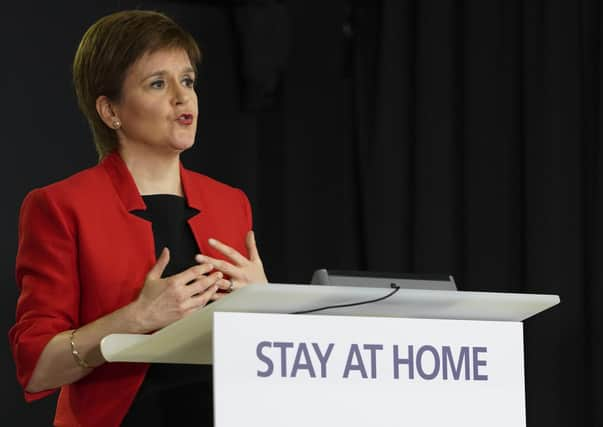Covid-19: Nike conference ‘cover-up’ is a scandal – leader comment


There is an insidious idea held by too many of those involved in the business of government – both politicians and civil servants – that the public does not really need to know what is going on.
In his memoirs, Tony Blair berated himself over the decision to introduce the Freedom of Information Act, writing: “You idiot. You naive, foolish, irresponsible nincompoop. There is really no description of stupidity, no matter how vivid, that is adequate. I quake at the imbecility of it.”
Advertisement
Hide AdAdvertisement
Hide AdThis view is born out of the arrogant assumption that the public cannot cope with complicated ideas, that governments know best and need no outside input to ensure they do the right thing, and that anything which goes wrong should be hushed up.
The Scottish Government’s failure to make the public aware of an outbreak of Covid-19 coronavirus in Edinburgh in February is a prime example of this attitude. Nicola Sturgeon has insisted there was no “cover up”, citing patient confidentiality as the reason why the news was not released and stressing that “contact tracing was done rigorously” after cases were discovered among delegates at a Nike company conference.
However, a number of people who interacted with delegates have – after the conference outbreak was revealed in a BBC documentary – come forward to say they were not contacted and had become ill. Publicity about the outbreak should have been part of the contact-tracing process and it would not have had to include the names of any individual.
Furthermore, a serious consideration about the introduction of the lockdown was whether the public would actually abide by it. The knowledge that the disease was already in Scotland and spreading would have helped many conclude that it was necessary.
We now know the virus was in Scotland on 26 or 27 February, but mass gatherings were not banned until 16 March, while the UK-wide lockdown did not begin until 23 March. According to an Edinburgh University study, more than 2,000 Covid deaths could have been prevented if the lockdown had begun two weeks earlier.
Whether or not there was a “cover-up”, as opposition politicians claim, the spotlight of publicity was certainly not used. It is past time for politicians to learn and truly understand the value of openness and transparency – because it can be a matter of life and death.
A message from the Editor:
Thank you for reading this article on our website. While I have your attention, I also have an important request to make of you.
With the coronavirus lockdown having a major impact on many of our advertisers - and consequently the revenue we receive - we are more reliant than ever on you taking out a digital subscription.
Advertisement
Hide AdAdvertisement
Hide AdSubscribe to scotsman.com and enjoy unlimited access to Scottish news and information online and on our app. With a digital subscription, you can read more than 5 articles, see fewer ads, enjoy faster load times, and get access to exclusive newsletters and content. Visit www.scotsman.com/subscriptions now to sign up.
Our journalism costs money and we rely on advertising, print and digital revenues to help to support them. By supporting us, we are able to support you in providing trusted, fact-checked content for this website.
Joy Yates
Editorial Director
Comments
Want to join the conversation? Please or to comment on this article.